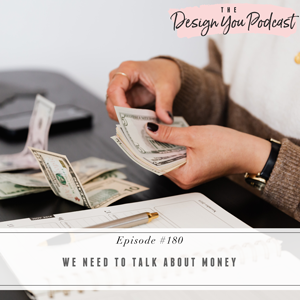
Do you believe that women are being salesy when they ask you to buy from them? Do you believe that when they sell to you, they don’t care about you personally or the results they promise – they only care about what they get out of it? So many people are offended when women appear salesy or want to talk about and make money because we have been culturally indoctrinated to believe this is bad.
Whether we like to admit it or not, there is a stark difference in the way men and women are treated when it comes to money. Our society has been set up for men to win and as women, we carry so much shame and apprehension around money that it affects our beliefs and behaviors around it. And I’m committed to doing my part to break the stigma and challenge the belief that women making money and wanting to talk about it is a bad thing.
In this episode, I’m sharing why the way we as a culture think about selling, making, and talking about money is a problem, and why it is so important for women to talk about this topic. I’m showing you how to check your mindset around money and question why you think about it the way you do, and start to think differently so you, too, can break the stigma around women wanting and making money.
If you want help creating a business with thriving revenue streams so that you can design the life you really want, get on the waitlist for the next round of my Design You Coaching Program. Inside, you’ll get access to a whole new course where I share my complete design system with you. You’ll receive every template, tool, SOP, worksheet, downloadable, video, and more that I have created and used myself, and receive a complete step-by-step for how to run your full-service projects.





